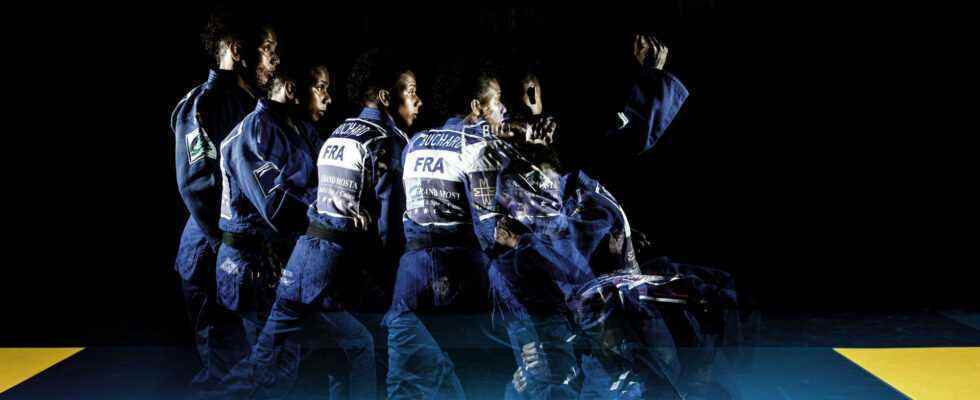Straightforward, she is aiming for gold. The world title in Hungary this fall, then Olympic gold in Paris in 2024. “I was European champion, twice world bronze medalist and individual Olympic vice-champion”, list without fuss Amandine Buchard, alias Bubuche. An already substantial judoka record that she wants, at 27, to complete by pure winning. “I love to challenge myself and I’ve had a competitive spirit since I was bornshe says with a broad smile. This was the case at school, when I played the PlayStation with my father or even football at the bottom of my city. »
So, this summer, to win… she won’t hesitate to go to sleep at the Hôtel-Dieu with headphones and sensors on her head to understand why she has sleep problems. Restless sleep “can be a big injury factor”, she explains. “They will be able to tell me what to do if at such a time of my night I wake up. I’m always up for this kind of experienceshe continues. Anything can help me, if only for a small detail. Because sometimes the little things make the big difference. » Amandine and her entourage appeal to science to refine her very high level as an athlete. But it’s not just a personal process.
Four years ago, in Montpellier, accompanied by six members of the French women’s team, she performed a memorable exercise. “We had big competition simulation sessions: a single surface, a succession of opponents chosen with particular profiles that bothered us”, remembers the judoka. In fact, to test the athletes’ endurance, their opponents changed every two minutes, halfway through the bouts. These were spaced fifteen minutes apart, the time to rest – a little – but also to do hand grip strength analyzes and blood tests.
Behind this meticulously prepared scenario, a pair made up of national physical trainer Frédéric Roualen and scientist Sébastien Ratel, teacher-researcher in exercise physiology. This explains: “A fight is won or lost in its second half, we wanted to test the fatigue of the judokas through the intensity of the matches. » Fact, three of them, including Amandine, will, following this experience, individually medal at the Olympic Games (JO) in Tokyo, another will become world champion.
Establishment of a “buffer system”
The results of this research, presented on July 12 to the French Judo Federation, and awaiting publication in theInternational Journal of Sports Physiology and Performancedescribe a female team capable “to maintain a level of strength between 82% and 88% after the 4e intense combat, which is exceptional”, continues the scientist. The study shows in particular that, during this effort, the athletes succeed in keeping an acid-base blood balance – measured by the pH – almost constant. For chemistry enthusiasts, this means that their metabolism sets up a “buffer system” – the blood acidifies very little – with the help of bicarbonate ions which capture protons. During the simulated fights in Montpellier, despite the fivefold increase in the blood concentration of lactate ions, these were only very slightly transformed into lactic acid, and therefore into potential muscle fatigue.
You have 69.66% of this article left to read. The following is for subscribers only.
